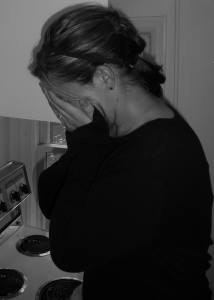 Loss can be a hard thing for many people. It does not simply mean a death, but can extend itself to a loss in a role that you played, a loss in a job, a loss of a piece of your identity. Regardless of how you identify loss, it can be difficult to cope with, adjust to, and move through. Grieving is the process by which we work through that loss. We are all different and process a loss differently. This is normal and okay. It is okay to be angry, sad, etc. What is important, is that you give yourself the space to feel those emotions, acknowledge them, and sit with them.
Loss can be a hard thing for many people. It does not simply mean a death, but can extend itself to a loss in a role that you played, a loss in a job, a loss of a piece of your identity. Regardless of how you identify loss, it can be difficult to cope with, adjust to, and move through. Grieving is the process by which we work through that loss. We are all different and process a loss differently. This is normal and okay. It is okay to be angry, sad, etc. What is important, is that you give yourself the space to feel those emotions, acknowledge them, and sit with them.
Get Support
During this time, it is also important to seek support. Many people find it challenging knowing what to do when someone experiences a loss. Often they may acknowledge the loss and express sympathy. Not knowing what will best suit you, many draw back and wait (of course this is not true for everyone or every situation). Thus it is important to ask for support and help when you need it. This is not a sign of weakness, but rather a sign of being human.
Take Care of Yourself
Taking care of yourself is vital during this time, though it may be challenging. Important considerations include eating healthy, making sure to eat or not eat too much, getting an adequate amount of sleep, drinking enough water, and exercising. All of these can help not only to boost mood, but can help to protect your body from getting colds or flues, which may be more likely. Attempting to follow regular routines may be beneficial during this time depending on the loss that you incurred. In this case, if regular routines are more harmful, it may be beneficial to get professional advice on strategies that would best help you during this difficult time. Taking care of yourself includes forgiving yourself. It is important to forgive yourself for any last words or actions (whether unspoken/undone or not) that may have happened, or past events that may have happened. Events cannot be changed, but what we can do is appreciate the experience that happened, learn from it, and let go of the negativity that we may carry with it.
Seek Professional Help when Needed
Finally, it is important to see extra help when needed. If you feel that the loss is too much to handle please see counselling or extra help. If you begin to think “life is not worth living” or thoughts similar to this reach out. There is help and there is hope. The Canadian Mental Health Association is available 24 hours to receive any calls! In addition, the following resources may be helpful and provide other things to consider when grieving:
https://www.cmha.ca/mental_health/grieving/
http://www.helpguide.org/articles/grief-loss/coping-with-grief-and-loss.htm
Have you benefited from reading this blog? Know someone that would benefit as well? Share, Like, Comment, or Tweet this article, and let me know what you think.
Some of the information provided above may not be appropriate for everyone, please consult with your doctor before trying any of the above. If you are interested in Naturopathic Medicine and wanting a different approach to your health care needs, contact Dr. Elisha Cook ND by calling 519-537-7058 and book your appointment today!

